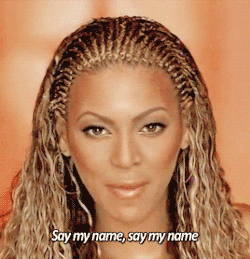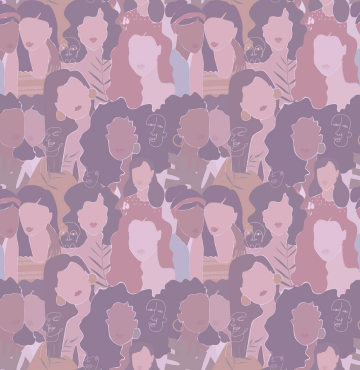A video tribute to those of us who have had to endure hearing, “You’re name is too hard, can I call you…”
I think I can speak for most African children who have grown up in the United States when I say we go through a bit of an identity crisis. There is an art to balancing cultures and identity of self. However, as children some of us don’t master that art quite well. Nonetheless, I have to share the one aspect that still seems to be a battle today: MY NAME.
Mobosinuola means, “I have come into my wealth.
My name is my identification. It is what I have to write down so that people know who I am. It is my signature. It is evidence of my culture. It is a deliberate choice of my parents. It is a prophecy over my life. My name is strong, beautiful, and rich. I love it and wear it with pride Somehow, I continue to encounter this wall that tells me I am not worthy or important enough for people to learn and say my name correctly. It is a great pet peeve of mine to proudly introduce myself to someone just to be countered with, “Oh, I can’t say that,” or, “Do you have a nickname?” Surely, I introduced myself to you as I would like to be addressed and did not follow it up with a, “But, you can call me…” so you asking is annoying.
I am a proud Nigerian of the Yoruba tribe. My name is Mobosinuola Asanpaola. Throughout my youth people know me as Mobosola, which derives from Mobosinuola. The easiest way to explain Yoruba names is that they all have meaning and are actual phrases or sentences. For example, Mobosinuola means, “I have come into my wealth.”
Now 22, it has taken a long time for me to come to this point. In fact, I used to just want to get the whole name conversation over with as soon as possible, accepting any pronunciation that was close enough to know I was the one being called. To the mortification of my parents, I hated teaching people my name as a child. I heard that my name was hard so much from peers and adults that I thought my father was unreasonable in directing me to insist that I am addressed as I was named. There was always that brief moment of dread when I was announced at programs or winning awards where my name was called. However, as I got to high school and became more appreciative of who I am and all that that entails, the mispronunciation of my name began to bother me. Part of the allure of college was the opportunity to be Mobosola. No Mo, Mobo, Mobiobiosala (yes, some people really called me that). However, once I got to college I didn’t speak up for myself when people started calling me Mo. Slowly but surely, some of the things I had eagerly left behind, I accepted once again.
If you’re important to them, or they want/need you, they’ll learn and remember.
PROFESSOR REGGIE RAY
My sophomore year of college, I took a class with Professor Reggie Ray, a tough man who had his own special way of showing love and had an effortless way of always dropping life gems. In this particular class we were discussing professional presentation, and of course the topic of appropriate email addresses arose. He was saying that the best thing to do is use your name. It will be easy to remember and will keep you at the forefront of their minds (whoever you were giving it to). I spoke up and said, “But, I don’t use my name because people don’t remember and always spell it wrong.” Expecting Professor Reggie Ray to agree and empathize with my dilemma, he said something I will never forget, “If you’re important to them, or they want/need you, they’ll learn and remember.”
I have some people who have known me for 10 years plus and cannot pronounce my name correctly. You cannot imagine how mind blowing it is to sit in an event or have a conversation with someone who mumbles across, butchers, or hesitates saying your name correctly after over 10 years.
Equally, it is incredibly disrespectful when my name is printed and listed with others, and is the only name spelled wrong. In fact, before I get excited about my name being on anything I stare at the spelling and say it out loud multiple times. Then, instead of being excited my name is printed for whatever reason, I’m relieved and elated my name is actually spelled correctly!
I am not proposing that everyone says my name the exact way my family says it. After all, we all have different accents and are trained to produce different influxes in our voice. However, I am saying that I do not deserve for you to turn into a human Microsoft Word, so that every time I give you my name you decide the alternative is “Motorola” or “Mambosa” or “Mobi” or “Sola.”
Did you know that when I graduated from college, one of the largest achievements I’ve had thus far, and got ready to walk across the stage the announcer butchered my name? I use “butchered” purposely because it sounded painful! I’m graduating yet here I am thinking the whole walk, “On my college graduation day here we go again”; “I wonder if my parents know I’ve been called since she didn’t say it right.” I was more disappointed because I made the effort to chase down and meet with the person announcing names for graduation to avoid this very thing.
Recently, I’ve chosen to introduce myself and be addressed by my whole name, Mobosinuola. In the times when I do use Mobosola I make a conscious effort to say it the way it is supposed to be pronounced, instead of the way I accepted in kindergarten after being frustrated that my teacher wouldn’t say my name the way I was telling her. Every time I am called Mo or another nickname I inwardly cringe. It is an unwanted reminder of all the people who have used it as a cloak of not learning my name.
Am I not worthy of the same respect and courtesy that I bestow upon you by learning and pronouncing your name correctly?
Equally mind blowing is that people can say Kardashian but can’t say Mobosola, or Kournikova but can’t say Mobosinuola, or even Schwarzenegger but not Asanpaola. Is it because today I’m not rich or famous? Is it because today I’m not powerful or influential enough? Am I not worthy of the same respect and courtesy that I bestow upon you by learning and pronouncing your name correctly? Or is it just lack of effort? Whatever the reason may be, it is disheartening, offensive, disrespectful, and unacceptable.
My name should not be compromised or negotiated. My name is my identification. It is what I have to write down so that people know who I am. It is my signature. It is evidence of my culture. It is a deliberate choice of my parents. It is a prophecy over my life. My name is strong, beautiful, and rich. I love it and wear it with pride.




